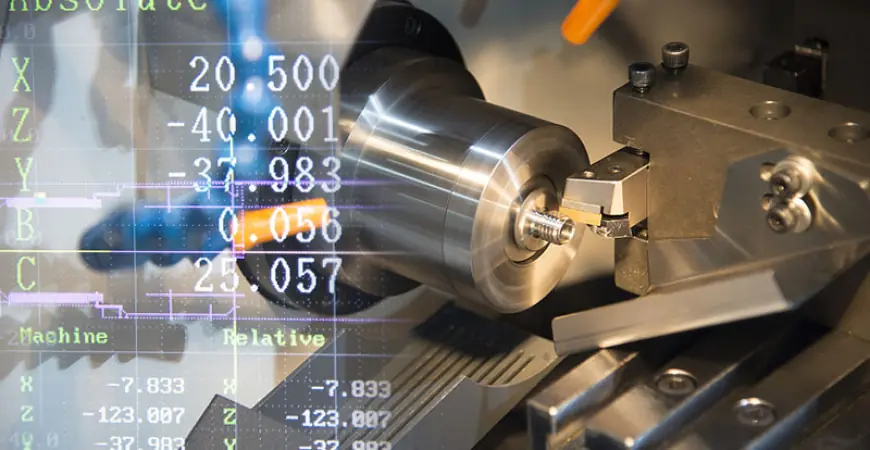The Rise of CNC in Australia: Trends, Applications & Innovations
CNC is boosting precision and efficiency in Australian manufacturing. It's key for custom work, smart automation, and local production across industries like metalwork and automotive.

Australia's manufacturing industry is undergoing an unobtrusive revolution. While precision, automation, and efficiency have never been more critical, CNC technology is staging center stage in the Australian revolution of production and fabrication. CNC in Australia, from small fabrication houses to large manufacturing plants, is turning out to be a powerful agent of innovation, productivity, and competitiveness.
What is CNC and why is it gaining Popularity?
CNC refers to computer control of machining equipment. The equipment includes drills, lathes, mills, plasma cutters, and numerous others. CNC differs from manual machining in the traditional sense due to its unmatched precision, repeatability, and speed.
In Australia, the need to raise labor costs and increase production output has driven the implementation of CNC as a strategic choice by firms. Growth in the aerospace, automotive, defense, mining, and metal fabrication sectors has also driven demand for CNC systems.
Key Trends Driving CNC Adoption in Australia
1. Advanced Automation and Robotics
CNC technologies are now being hybridised with robotic arms, conveyor systems, and automated storage systems. By doing so, downtime is reduced, cycle times are improved, and the risk of human error is avoided. To Australian manufacturers wanting to expand or streamline their operations, these technologies bring significant ROI.
2. Heightened Demand for Custom Fabrication
Customers these days require custom products at affordable rates. CNC machines enable us to meet this requirement more quickly and with greater accuracy. It can be anything from a single piece of metal signage or a batch of custom car components; the CNC machines offer flexibility without compromising on quality.
3. Shift to Onshore Manufacturing
Recent supply chain disruptions worldwide have prompted many Australian companies to reshore their production. Through CNC technology, local businesses can match their offshore competitors in terms of price and quality. This "reshoring" has given rise to fresh opportunities for CNC-led workshops and engineering firms.
4. Rise of Smart Manufacturing
Digitalization is sweeping the Australian industry, and CNC is leading the way. New machines come equipped with IoT sensors, cloud connectivity, and predictive maintenance features. Businesses can now monitor machine performance in real-time, reduce waste, and make more informed production decisions.
Common Applications of CNC in Australia
CNC technology is not industry-specific. Its flexibility makes it applicable to various industries:
- Metal fabrication: Cutting, drilling, welding, and shaping of metal sheet and components.
- Woodworking: Custom furniture, cabinets, and wooden designs.
- Plastics & composites: For the Automotive and Packaging Industries.
- Signage and Engraving: Custom signage, logos, and branding solutions.
- Prototyping and R&D: For product development in design and engineering firms.
With CNC, tasks that previously required hours of manual labor can now be completed in minutes with high accuracy.
The Contribution of CNC towards Facilitating Australian Innovation
Australia has been a country of innovation for many years, particularly in mining, defence, and agriculture. CNC technology enhances innovation through faster prototyping, improved part accuracy, and enhanced product quality. It also enhances local entrepreneurship by providing access to skills that were previously only available in large factories to new small businesses and start-ups.
Education centers and TAFE colleges nationwide are also investing in CNC training, equipping the next generation of engineers and machinists to lead the country into the digital manufacturing era.
Conclusion
The expansion of CNC in Australia is not a phase; it's a revolution that's changing product design, development, and delivery. From maximizing manufacturing productivity to enabling small businesses to compete internationally, CNC technology is enabling industries worldwide. Whether you need to grow your fabrication business or explore digital machining capabilities, investing in CNC equipment like a CNC plasma cutter in Australia can transform your business.
What's Your Reaction?
 Like
0
Like
0
 Dislike
0
Dislike
0
 Love
0
Love
0
 Funny
0
Funny
0
 Angry
0
Angry
0
 Sad
0
Sad
0
 Wow
0
Wow
0

















































